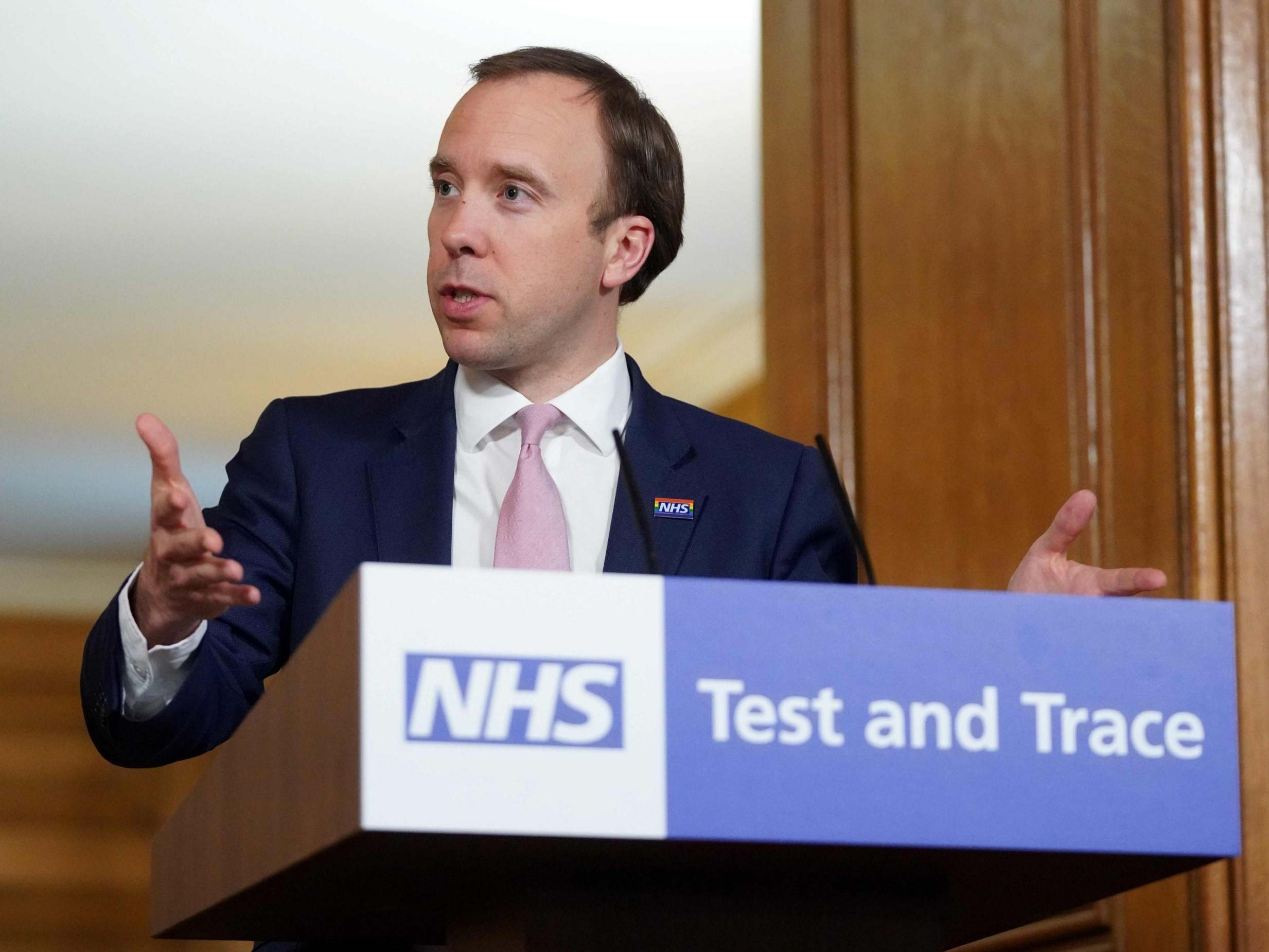Health secretary Matt Hancock has said he still cannot say when the government’s contact-tracing app will be ready to launch – despite the prime minister’s promise to have a “world-beating” test and trace system in place by the start of June.
The cabinet minister said that trials of the app have been continuing on the Isle of Wight but did not know when it would be available to people across the UK.
“The app is progressing and we will launch it when the time is right. I am not going to put a date on it,” Mr Hancock told the virtual CogX technology conference on Wednesday.
Download the new Independent Premium app
Sharing the full story, not just the headlines
The health secretary also claimed that persuading people to self-isolate if they had been in contact with someone with the disease was better done by a human contact-tracer.
“What really matters is the people. The technology is a facilitator for people to be able to do things better,” he said.
“Getting people actually used to the idea that if you are contacted by the contact tracer you do that (self-isolate). That is better done with human contact and hence the contact-tracing system that is up and running is working well.”
The government has been criticised by former Tory health secretary Jeremy Hunt for failing to reveal any data on the NHS Test and Trace programme launched on 28 May.
Some of the contact tracers hired for the new system have told an independent experts’ group that they have received little or no work to do since the scheme was launched at the end of last month. One NHS executive has reportedly told staff the system will not be fully operational until the autumn.
Mr Johnson said during Prime Minister’s Questions earlier on Wednesday that MPs would get to hear “a bit more about what’s happened with NHS Test and Trace” on Thursday.

Mr Hancock was questioned on the expected rise in NHS waiting lists as the service reopens following the concentration on coronavirus cases.
The latest news on Brexit, politics and beyond direct to your inbox
The health secretary said he did not recognise a projection by the NHS Confederation that the numbers could more than double to 10 million by the end of the year, but he did acknowledge there was a “very serious problem”.
“That isn’t the figure that we have got, but there definitely is an increase. Absolutely,” he told the CogX conference. “Our biggest problem is people not coming forward. We all know that, especially with cancer and other areas like stroke and heart disease, early diagnosis is so important in improving the survival rates.”
He added: “We have got to make sure that people come do forward for these treatments that are available again because we have restarted the NHS.”
Mr Hancock said the biggest fall in people seeking treatment had been in accident and emergency, with the greatest reduction being seen in those with the least serious injuries.
“Some of that will be people actually going to the right setting, going to their GP,” he added.


